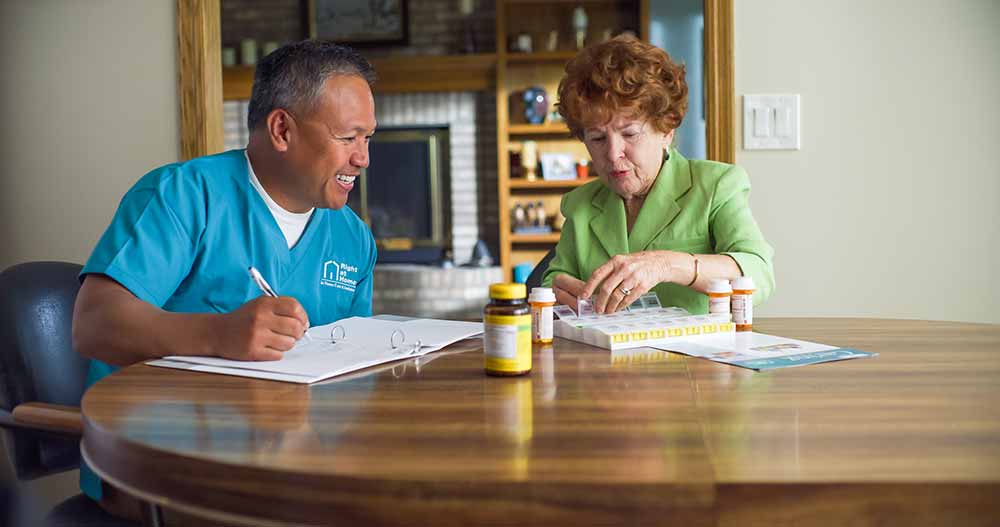

How to Be Better Prepared for Successful Aging
Brush and floss your teeth. Save and invest your money wisely. Eat nutritiously. Stay active. Surround yourself with caring, positive people. The list goes on for sound advice on how to prepare for “successful aging,” a term credited to John Wallis Rowe, M.D., and psychology and public health professor Robert L. Kahn, Ph.D.
In their “Successful Aging” book, Rowe and Kahn noted that flourishing as you age includes: (1) safeguarding your physical health and avoiding illness, disease and disability; (2) maintaining solid cognitive and physical abilities; and (3) staying actively engaged with life and relationships.
While everyone from gerontologists to financial planners to medical doctors and elder attorneys debate how to prepare for aging well, a Forbes “What Is Successful Aging?” article sums up the process. “Meaningful aging does not involve ‘winners or losers’ in terms of longevity and health,” the article states, “but rather the need to focus on what is most meaningful to a person, especially in older age.”1
Many Americans Are Not Ready
For many seniors and those approaching their golden years, focusing on what is most meaningful means planning out preferences for future care needs, finances, legal arrangements and other personal choices, then communicating these decisions clearly to loved ones.
Yet, as AARP reports, many Americans are just not ready for this type of meaningful (or successful) aging. One national survey found that only 58% of baby boomers (ages 53-71) have estate-planning documents. The survey also noted that just over half of the 1,000 adult respondents have a power of attorney to help in case of serious health problems or mental or physical incapacity.2
It is not easy to bring up discussions about finances, ill health and eventual death. It may feel a bit awkward to talk through estate plans. But when the family gets together for the holiday season, it is an ideal time to address your potential healthcare needs or those of a senior loved one. Casual holiday togetherness time is a natural segue to interacting with the family about current and future care needs.
Initiating planning-for-the-future conversations will help prevent loved ones from being caught off-guard when a health, financial or legal issue occurs. But how do you communicate your successful aging plans without family members dismissing you or taking charge, or someone feeling hurt or left out of the dialogue?
Simple Steps to Communicate Well
Fortunately, a team of home care professionals has already anticipated roadblocks and reservations about the conversation covering health, finance and legal needs of older relatives. The RightConversationsSM resource guide offers families tools and pointers for talking through a relative’s options for their personal affairs and assistance to live safely at home. The solutions-driven guide developed by home care leader Right at Home helps resolve communication gaps and conflicts between seniors and their family caregivers as they talk about a care strategy for aging successfully.
The following steps from the RightConversations materials are easy to understand and put into practice.
Step 1: Gather the important information.
The RightConversations Information Journal is a great jumping-off point to assist families in collecting the pertinent details about the loved one’s health, doctors, family history, finances, insurance and other key personal facts. The Information Journal includes streamlined forms to keep all the relevant information in one place. For example, there is ample space to fill in the names of life, health and auto insurance companies and policy numbers, and where to find the older adult’s legal and financial paperwork.
Because the senior’s health may waver, it is essential to learn specifics about the individual’s current condition and medical care. The following suggestions for the information-gathering stage can help with wise choices moving forward:
- Make a note of what you see occurring. Do you notice your loved one can no longer perform specific tasks?
- Listen to your inner voice. That internal messenger could be telling you something is not quite right with your loved one or their condition is changing.
- Accompany your aging relative to doctor appointments so you hear information firsthand and can get a true picture of your loved one’s condition.
- Ask about medications. You can obtain information about the loved one’s medications and their adverse effects from a physician, pharmacy, or reliable source from the library or internet. Problems arise when medications expire, are taken at the wrong dose or interfere with a different medication.
Step 2: Organize tasks that need to be delegated to family members or service providers.
The RightConversations Family Action Planner documents the actions each family member will take to better support their loved one and includes an area for contact information of those who may assist in the care of the senior. Listing these to-dos in the Family Action Planner helps keep a record for all parties involved. Who will help with lawn work or financial management? Who will assist with meal preparation or cleaning? Who will be the person responsible for emergency care or a possible crisis related to caregiving?
Step 3: Plan in case an unexpected hospitalization happens.
A fall, the flu, a disease flare-up—any number of illnesses or medical crises can lead to a loved one being admitted to the hospital. Later, as the patient prepares to be discharged, a number of questions and concerns can arise about returning home. Do I need any kind of care after my hospital stay? What medications should I take, and what medication schedule should I follow at home? What activities am I allowed to do and what activities should I avoid? What are my dietary restrictions and nutritional requirements?
As a pioneer in hospital-to-home care transitions for seniors, Right at Home launched RightTransitions® in 2010 as one of the first programs to provide care and support to patients during the transition from a hospital or other care facility back home. RightTransitions care services feature a full range of options from which to choose, such as personal care, health reminders, meal preparation, transportation to appointments and light housekeeping.
When it comes to successful aging, open communication among loved ones is beneficial. Sometimes, it can be challenging for family members to have conversations with an aging relative who may fear losing their independence, but taking the initiative to talk with them honestly and compassionately can strengthen the relationship for the seasons ahead.
1 Forbes. What Is Successful Aging? Retrieved from https://www.forbes.com/sites/nextavenue/2018/09/10/what-is-successful-aging/#29aa0a141dd7.
2 AARP. Haven’t Done a Will Yet? Retrieved from https://www.aarp.org/money/investing/info-2017/half-of-adults-do-not-have-wills.html.







